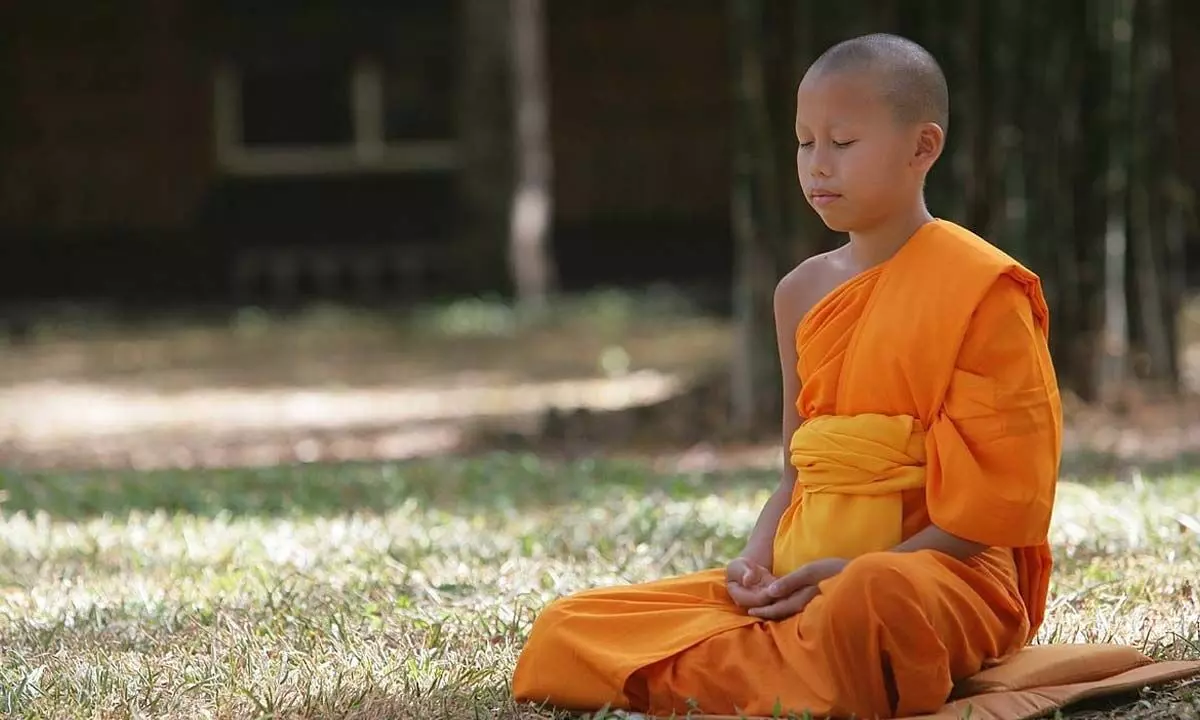Enlightenment – Becoming Light

Enlightenment – Becoming Light
Vedanta declares liberation (moksha) as the highest goal of human life. Right knowledge with self-discipline is enlightenment, and that leads to liberation. The question is liberation from what? Expressions like ‘liberation army’ imply that some bonds exist and we are freed from them
Vedanta declares liberation (moksha) as the highest goal of human life. Right knowledge with self-discipline is enlightenment, and that leads to liberation. The question is liberation from what? Expressions like 'liberation army' imply that some bonds exist and we are freed from them. What are these chains or bonds?
Most of us function at lower human goals: dharma, artha (resources) and kaama (pursuit of pleasures). Going beyond these and devoting oneself to knowing the highest Reality is liberation. Once Reality is known, a person is called a realised one who has transcended the lower pursuits. It does not mean that he renounces all duties. He may be engaged in his normal duties, or a dharmic activity, but he is not claiming any glory or fame; he does not seek any benefit from that, but he does it as a part of his duty to society. In a way, he has thrown off some unwanted burden and become light, and the right word to describe this state is enlightenment.
Man is born free, but everywhere he is bound by chains, said Rousseau, the French philosopher. What he said is a direct statement from our Upanishads. When a person is born, he is given a name, religious identity, nationality, ideology, etc. The person grows up with that identity without questioning it, lives for it, fights for it and even dies for it. We rarely encounter people who question their religious or social values. The realised person does precisely the same. He dwells on the real nature of self and discovers that all the identity he had all along was a superimposition, a burden on him/her. Such a person liberates himself from the social identity, which means his caste norms, religious norms and all defining features. He goes beyond the limitations of social, cultural, or religious identities, and practically he is neutral and compassionate like God himself. The Brihadaranyaka Upanishad calls him ati-varnashrami, one who has transcended all the defining features, the injunctions of varna and ashrama. He loses his identity in the Supreme Reality. He is the outsider, a seer, who observes human behaviour, which he transcends and performs his actions in society from that perspective.
Every human being is entitled to liberation. Mere reading of scriptures does not make a person eligible for it. Scriptures give necessary material to contemplate. It is only through a process of inner change, through a gradual annihilation of the ego, by going beyond likes and dislikes and going beyond all social superimpositions like caste, religion, nationality, or race. The wise person is at home with all beings and has unconditional love for all beings. It is a tough practice.
Is there any use of him for society? Is he, not a selfish person who has adopted a lonely path? Such questions are immature. The enlightened person is like a moral storehouse, a spiritual role model to society. Such people enlighten others, wake them up to the truth, loosen the hold of the custodians of religious or ideological dogmas, and make the world a better place to live.
(The writer is an IPS, Former Director-General of Police united Andhra Pradesh state)










